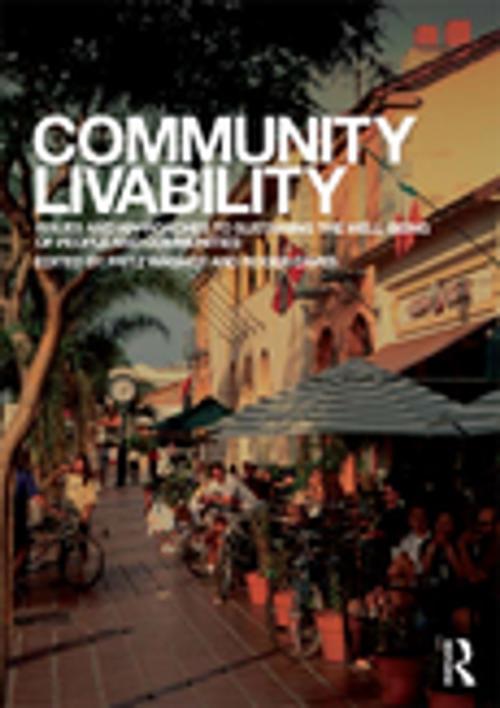Community Livability
Issues and Approaches to Sustaining the Well-Being of People and Communities
Nonfiction, Art & Architecture, Architecture, Landscape, Social & Cultural Studies, Social Science, Sociology, Urban| Author: | ISBN: | 9781136512551 | |
| Publisher: | Taylor and Francis | Publication: | June 25, 2012 |
| Imprint: | Routledge | Language: | English |
| Author: | |
| ISBN: | 9781136512551 |
| Publisher: | Taylor and Francis |
| Publication: | June 25, 2012 |
| Imprint: | Routledge |
| Language: | English |
What is a livable community? How do you design and develop one? What does government at all levels need to do to support and nuture the cause of livable communities?
Using a blend of theory and practice, experts in the field look at evidence from international, state and local perspectives to explore what is meant by the term "livable communities". Chapters examine the various influencing factors such as the effect and importance of transportation options/alternatives to the elderly, the significance of walkability as a factor in developing a livable and healthy community, the importance of good open space providing for human activity and health, restorative benefits, the importance of coordinated land use and transportation planning, and the relationship between livability and quality of life.
While much of the discussion of this topic is usually theoretical and abstract, Wagner and Caves use case studies from North America, Brazil and the United Kingdom to provide substantive examples of initiatives implemented across the world. This book fills an important gap in the literature on livable communities and at the same time assists policy officials, professionals and academics in their quest to develop livable communities.
What is a livable community? How do you design and develop one? What does government at all levels need to do to support and nuture the cause of livable communities?
Using a blend of theory and practice, experts in the field look at evidence from international, state and local perspectives to explore what is meant by the term "livable communities". Chapters examine the various influencing factors such as the effect and importance of transportation options/alternatives to the elderly, the significance of walkability as a factor in developing a livable and healthy community, the importance of good open space providing for human activity and health, restorative benefits, the importance of coordinated land use and transportation planning, and the relationship between livability and quality of life.
While much of the discussion of this topic is usually theoretical and abstract, Wagner and Caves use case studies from North America, Brazil and the United Kingdom to provide substantive examples of initiatives implemented across the world. This book fills an important gap in the literature on livable communities and at the same time assists policy officials, professionals and academics in their quest to develop livable communities.















